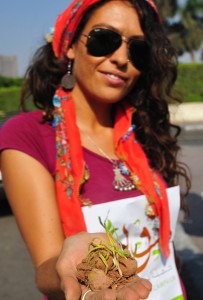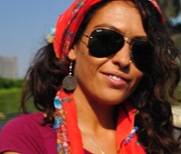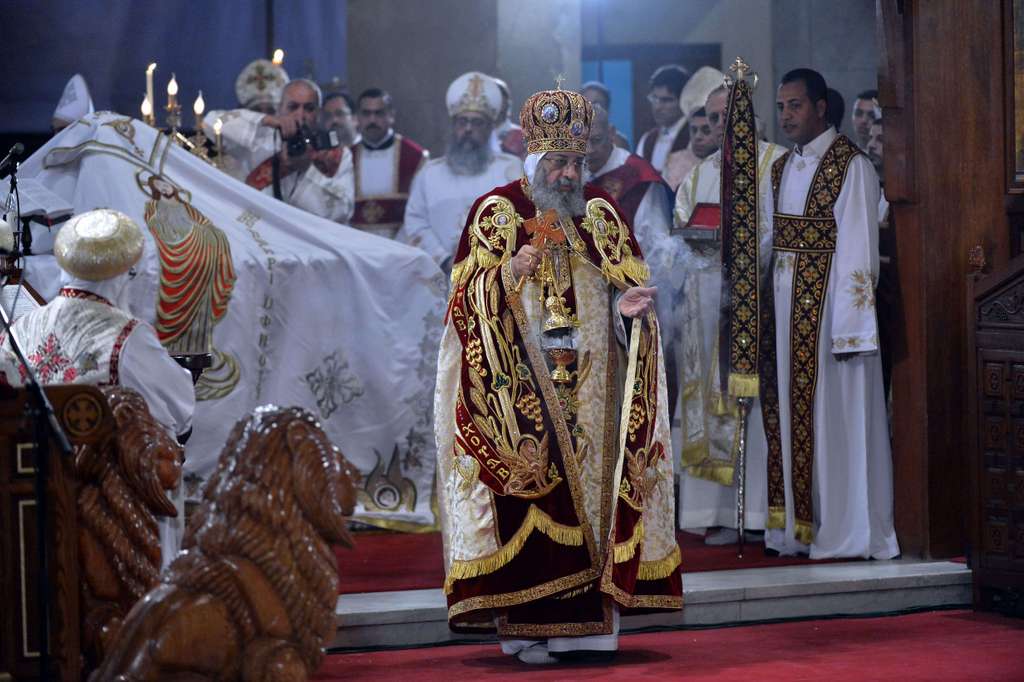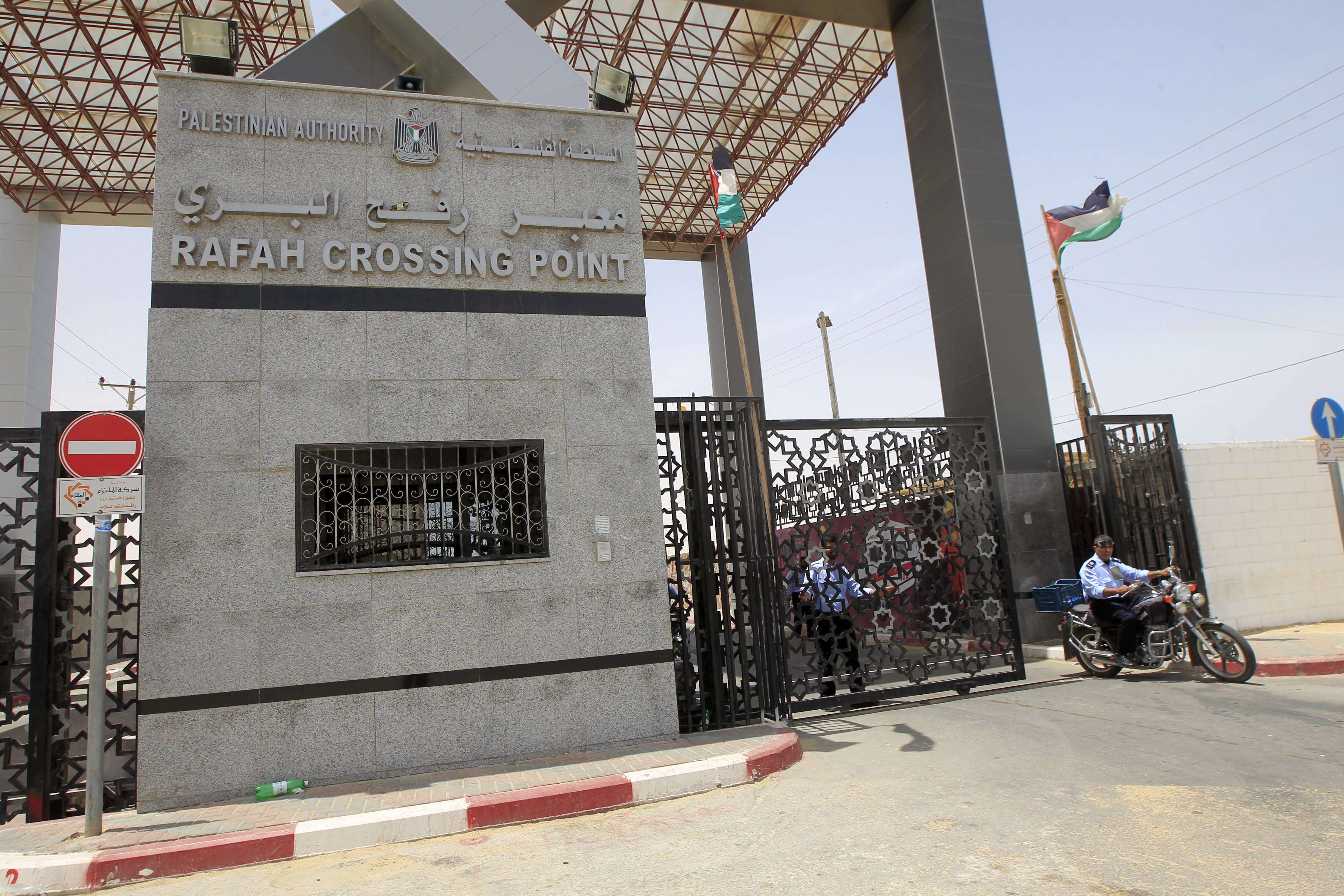
Egypt got seed bombed on Saturday.
Environmental activists walked through Cairo and Alexandria throwing ‘seed bombs’ in an effort to raise awareness of food crises in Egypt, and also to give root to productive plants in the middle of Egypt’s two biggest cities.
The Bozoor Balady Campaign distributed the seed bombs, which are walnut-sized balls of clay and compost. In the centre of the balls is a cluster of organic seeds that are native to Egypt.
Because of Egypt’s arid climate, the seed bombs were thrown only in public areas that normally receive watering, such as the roundabout beside the Arab League Building in Cairo and the recently re-planted centre Tahrir Square. The hope is that the seeds will take root and begin to grow. The group carried with them a sample seed bomb that had been receiving water for only two days, its green stems were already stretching six centimetres out of the pod.
“The idea is to start a conversation,” said Aurelia Wientz, one of the organisers of the event put on by environmentally focused NGOs Greenpeace, Nabta, 350.org, Green Arm Initiative, and Nawaya. “We’re out here to talk about how Egyptians eat genetically modified food that is non-local, but also to reclaim our public spaces. Everywhere you look you see ornamental trees, we want to replace those with productive plants.”
Weintz is aware of criticism, but says, “You can give 1001 reasons why not to do this, like pollution, and dogs, but we have to start some time.”
One group unloaded wheelbarrows filled with seed bombs in Saad Zaghloul Square, Cairo, in anticipation of a midday march to Tahrir. As the coordinators were preparing, people started to gather, asking questions and receiving long, in-depth answers. As the group prepared to set off on foot, over 30 people had stopped to ask questions and ended up engaged in lively conversations; including taxis honking to get around the crowd and a suspicious policeman examining one of the seed bombs.
A group of teenage girls who were eating packaged croissants and potato chips stopped to have a conversation with the organisers of an event that hopes to, “highlight the disaster foods that infect the Egyptian people as a whole, leading to an open dialogue about food.”
The conversations continued as the group walked over the Kasr Al-Nil bridge toward downtown.
“We had two trainings,” said Weintz, “One in September, and another one last week. The trainings took place simultaneously in Cairo and Alexandria. People came to discuss our issues and to make the balls. We made between 8,000 and 10,000.”
Two of the products of those trainings were Caireen high school students Khalid and Yasmine who each held one side of a wicker basket filled with seed bombs. When asked about why they were attending the march, instead of listing personal reasons, the two reeled off an incredibly well-informed list of why Cairo needs to change its environmental path. In addition to listing statistics of seed producers in Egypt, Khalid said, “These seeds we plant today will grow and then in the spring when the pollen starts to travel, organic native seeds will spread all over Cairo.”
At every tree planted in the sidewalk, in every stretch of grass along the road, and finally in the middle of Tahrir Square, the group gleefully hurled the balls full of barley, peas, and wild mint.
Some of the happiest guerrilla gardeners were Alim and Mahmoud, two seven-year-old boys who wandered over as the group set up in Zamalek and stayed all the way until the photo op taken at the end of the day. The boys listened intently to the organisers talking points, and then walked around passing out flyers and repeating those talking points. In fact, Mahmoud was the last one of the crowd to make it off Kasr Al-Nil bridge, he had stayed behind to talk to some teenagers about planting seeds in Cairo.
Photo
Aurelia Weintz holds a cluster of seedlings ready to spread around Cairo as a part of the Bozoor Balady campaign
Hassan Ibrahim / DNE




